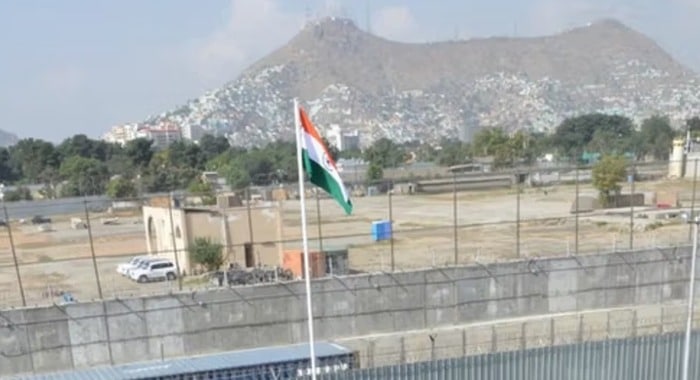For months, the Afghan Taliban have flirted with India, shaking hands, exchanging words, and offering embassies and consulates, while conveniently ignoring the decades of support, shelter, and sacrifice Pakistan has extended to them. This growing India-Taliban “bromance” has not only raised eyebrows in Islamabad but also raised serious questions: has the Taliban forgotten who stood by them when no one else would? And will they now begin to understand India’s real agenda?
The expulsion of Harish Kumar, a senior Indian diplomat and intelligence officer, might finally be the wake-up call they need.
According to Afghan media reports, the Taliban declared Kumar persona non grata and forced him out of Kabul on August 17, accusing him of secretly meeting anti-Taliban figures and trying to organize them, a clear red line for the regime in Kabul. But if anything, this incident exposes the inherent contradiction in the Taliban’s recent tilt towards New Delhi.
Kumar had reportedly traveled to Delhi and Qatar to meet opposition leaders and was involved in planning a political gathering in Islamabad for August 25–26, a meeting the Taliban leadership, including Abdul Ghani Baradar and Yaqoob Mujahid, vehemently opposed. That conference was eventually postponed, and the Taliban didn’t hesitate to criticize Pakistan for even entertaining the idea. Yet, the same Taliban allowed an Indian official with deep intelligence ties to operate freely in their capital, until his agenda came to light.
Even after the Islamabad plan collapsed, Kumar explored moving the talks to Qatar or Dubai, reportedly under pressure from Delhi. Upon returning to Kabul on August 13, he held another secretive meeting with opposition figures in Shahr-e-Naw. The Taliban’s own intelligence forces raided the gathering and detained Afghan attendees, prompting swift action: Kumar was expelled, and the Indian embassy was informed on August 16.
While India has yet to comment, the message is clear: Delhi was playing a double game. And the Taliban? Will they admit they were being used?
This entire episode is not just an intelligence failure; it’s a diplomatic embarrassment for the Taliban and a hard lesson in geopolitics. India, long hostile to the Taliban during their insurgency days, has now found a convenient partner in Kabul. New Delhi quickly took control of Afghan embassies abroad and courted the Taliban leadership, even inviting their foreign minister to Delhi, although those visits were blocked by the UN.
Meanwhile, Pakistan, which hosted millions of Afghan refugees, provided shelter to Taliban leaders during the war, and consistently pushed for peaceful engagement, has found itself repeatedly sidelined and even blamed by the same group it once helped empower.
Let’s not forget: India’s strategic interest in Afghanistan is driven by its rivalry with Pakistan. Its outreach to the Taliban is not about peace or stability, it’s about countering Pakistan’s influence, using Afghan soil as leverage. The Harish Kumar saga should serve as a loud alarm bell in Kandahar and Kabul.
So, the real question now is: will the Taliban finally realize they’re being used, or will they continue to betray old allies for temporary applause from old enemies?
Pakistan deserves better. And the Taliban owe the region, and history, an answer.





